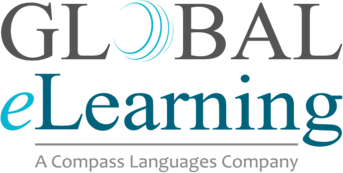The Importance of Multilingual Global Life Science Training
Life Science Localization
While English is the principal language in the life science industry, it is not the only language. Often, there is collaboration or dissemination of information across language barriers. And, in many of these highly-specialized fields, there is little margin for error or miscommunication. Thus, every precaution must be taken to ensure doctors, employees, and researchers are effectively trained. In this article, Global eLearning will share some of the methods that should be incorporated into your life science training programs.
The global Life Science industry is highly competitive and moving at an accelerated pace, driven by research, manufacturers, patents, and ultimately consumer health. Getting one product to market requires extensive collaboration before, during, and after the product hits the market. Ensuring that all of the information is properly conveyed and comprehended throughout each step of the process is literally life and death. Global agencies must ensure regulatory compliance for safety monitoring and support as well. Doctors, healthcare workers, and consumers rely on prescription packaging to guide them in the utilization of the products like dosage, how often to administer, and contraindications. Authentic Localization℠ and translation is critical. These processes often include:
- SME reviews and linguistic validation
- Verification of the bilingual glossary by a medical/pharmacological researcher
- Three-step translation methodologies
- Back translation and verification
- Cognitive debriefing
- Reviewing source text for words that may be dangerous to use in delicate contexts or the likely misunderstanding of the meaning.
Education & Training Records. The following example shows the importance of translation and localization of content in training materials for life science industry personnel and compliance implications. 360 Factors reported that “The FDA is very serious about training or lack of training. Generally, FDA investigators will check training records to verify that a company’s training program is adequate. Take a moment to look at FDA’s website Warning Letters which show that lack of or inadequate training or incomplete training records are common warning letter deficiencies.” This includes translation and localization of training to employees whose first language may not be English.
Global eLearning has extensive experience with the localization of life science training materials. Contact Global eLearning today to get started today!



